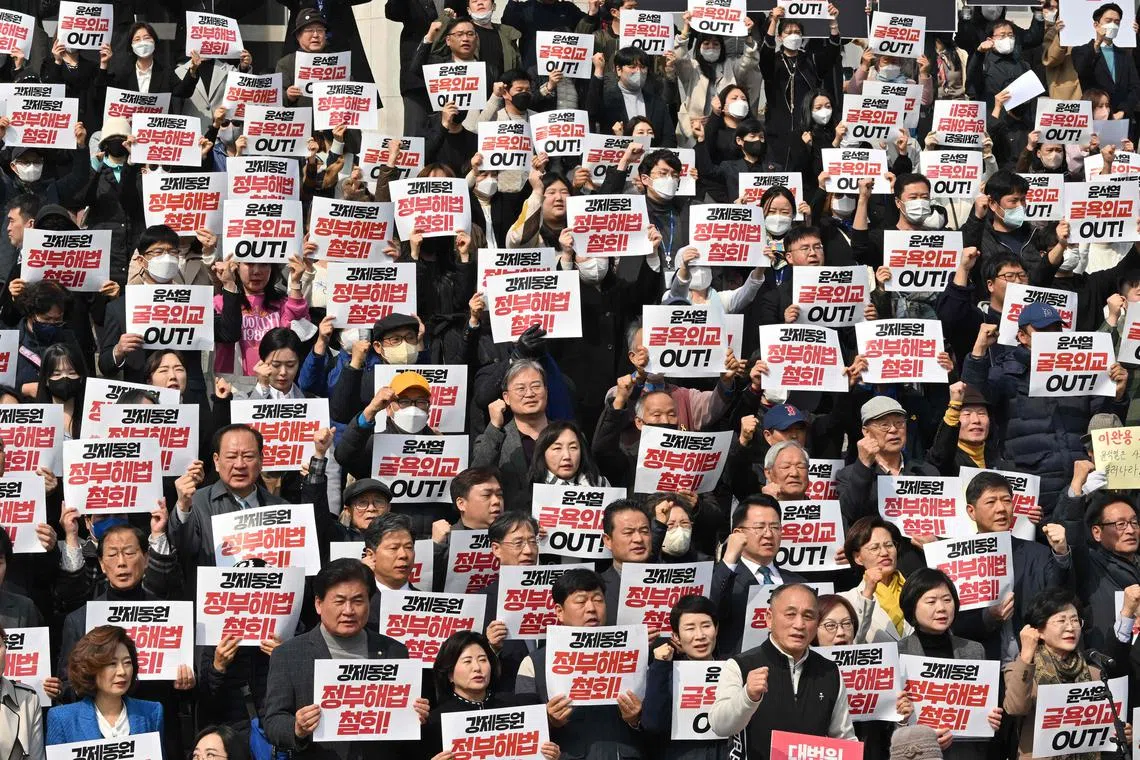South Korean plaintiffs in Japan forced labour cases reject compensation plan
Sign up now: Get ST's newsletters delivered to your inbox

Potesters denouncing South Korea's plans to compensate victims of Japan's forced wartime labour, on March 7.
PHOTO: AFP
Follow topic:
SEOUL - The three surviving South Koreans who have won court cases over being forced to work under Japanese colonial rule have formally rejected a government compensation plan, potentially throwing up legal obstacles for Seoul as it seeks to mend ties with Tokyo.
Seoul announced last week that South Korean companies would compensate people forced to work
Three of 15 plaintiffs in cases where South Korea’s Supreme Court ordered Japanese firms to pay reparations in 2018 are still alive and all are formally rejecting the government proposal, a representative said on Monday.
Mr Lim Jae-sung, a lawyer for one of the three plaintiffs, made the comments as he delivered written evidence of their objections to the state-run foundation that would oversee the compensation under Seoul’s plan.
It was not immediately clear if families of the deceased plaintiffs will accept the plan.
It was not also immediately clear how Tokyo would respond if Seoul is unable to convince the plaintiffs to accept the proposal, one that has been hailed as “groundbreaking” by US President Joe Biden.
South Korean President Yoon Suk Yeol is set to visit Japan this week
Mr Yoon’s office has called the planned visit, the first such in 12 years, “an important milestone in the improvement and development of relations between South Korea and Japan”.
The two countries’ relations plunged to their lowest point in decades after the 2018 Supreme Court rulings. None of the 15 South Koreans have been compensated.
Japan has said the matter was settled under a 1965 treaty and Japanese Foreign Minister Yoshimasa Hayashi said last week his government’s stance had not changed. REUTERS

